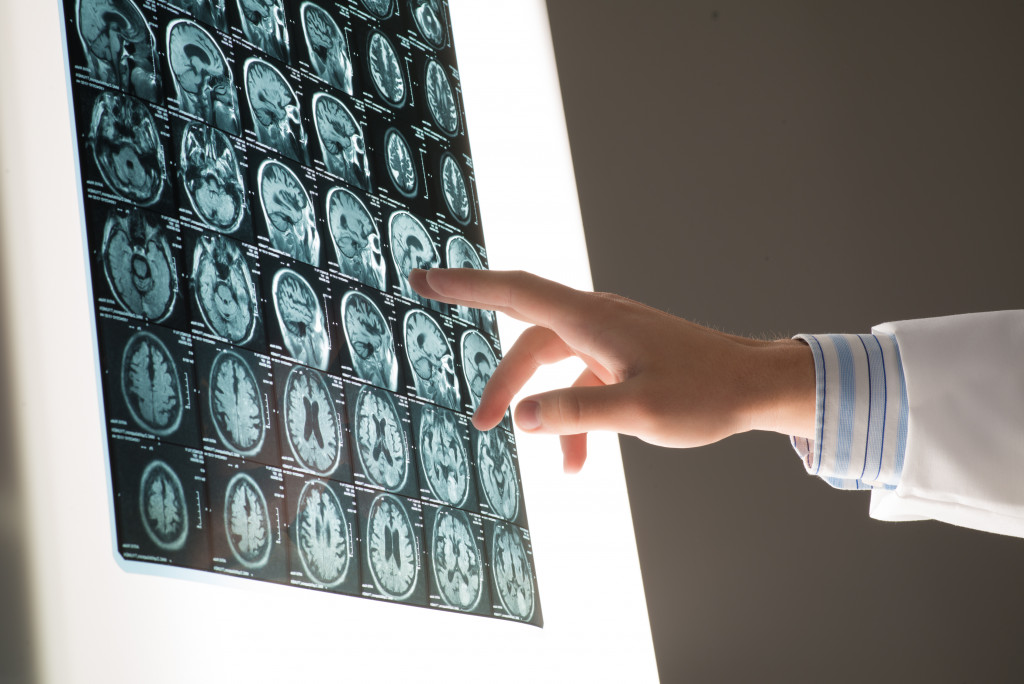A stroke happens when blood flow in the brain gets interrupted, preventing brain tissues from getting the necessary nutrients and oxygen. Within a few minutes, brain cells can die due to inadequate blood supply.
Stroke can cause permanent brain damage or even death if not treated promptly. This is why health experts recommend that everyone check if they are at risk of stroke. This will make it easier to detect the condition early and take the necessary steps that can help prevent this from occurring.
Are You at Risk of Stroke?
So, how do you know if you are at high risk of stroke? Here are five signs that say you may be at risk:
High Blood Pressure
High blood pressure is one of the main risk factors for stroke. In fact, about 75% of people who have had a stroke have high blood pressure. When your blood pressure is high, your heart has to work harder to pump blood to the rest of your body. This can damage blood vessels and increase your risk of stroke.
Smoking
Cigarette smoking doubles the risk of having a stroke. This is since smoking damages and narrows the blood vessels, making it more difficult for blood to flow to the brain. Smoking also increases the buildup of plaque in the arteries, raising the risk of stroke.
Diabetes
Diabetes is another crucial risk factor for stroke. People with diabetes are more likely to have high blood pressure and other conditions that increase the risk of stroke. Diabetes also damages the blood vessels, making them more susceptible to blockages.
High Cholesterol
High cholesterol levels can cause narrowing and hardening of the arteries, making it more difficult for blood to flow to the brain. Smoking, not exercising, eating foods high in cholesterol and saturated fat, and being overweight or obese can cause your cholesterol levels to rise.
Family History
If you have a family member who has had a stroke, you may also be at increased risk. Some risk factors for stroke, such as high blood pressure and diabetes, are hereditary, increasing your chances of having a stroke if they run in your family.
These are a few examples of the things that can put you at risk of stroke. If you have any of these risk factors, it is essential to talk to your doctor so you can take steps to prevent a stroke from happening.
Tests Your Doctor May Recommend

The following tests can help your doctor determine if you have conditions that may put you at risk of stroke.
Blood Tests
A blood test can check for high cholesterol and diabetes. Your doctor may also look for indicators of inflammation in your blood, which are usually connected to a higher chance of stroke. They may order tests like a complete blood count (CBC) or C-reactive protein (CRP) test.
- A CBC will measure the levels of different types of cells in your blood, including red blood cells, white blood cells, and platelets. An abnormal CBC may indicate an infection or other underlying condition.
- A CRP test determines the C-reactive protein levels in your blood. Your liver produces a protein called CRP in response to inflammation which may be a sign of an infection or other underlying condition.
Imaging Tests
Your doctor may also recommend imaging tests to check for blockages in your arteries or other problems with blood flow to your brain. These tests can include an ultrasound, computed tomography (CT) scan, or magnetic resonance imaging (MRI).
- Ultrasound uses sound waves to create images of your arteries.
- A CT scan uses X-rays to create detailed images of your brain and blood vessels.
- An MRI uses a powerful magnet and radio waves to create detailed images of your brain and blood vessels.
These tests can help your doctor identify blockages or other problems with blood flow to your brain that may be putting you at risk of stroke.
Echocardiogram
Also known as an echo scan, it is an ultrasound that gives your doctor a close look at your heart. This test can be used to check for problems with the way your heart is pumping blood, which can lead to stroke. Your doctor may recommend an echocardiogram if they suspect you have heart disease or are at risk of having a stroke.
When it comes to these tests, you have the option to get them done at a hospital or at an outpatient facility. If, for example, you want a private echocardiogram scan instead, it would be best to choose an outpatient facility that can offer same-day appointments. Some facilities also don’t require a GP (General Physician’s) referral, which means you can get the test done sooner.
After your doctor has reviewed the results of these tests, they will be able to tell if you are at risk of having a stroke. They can then recommend steps you can take to prevent one from happening.
Preventing Stroke
If you are at risk of having a stroke, your doctor may recommend lifestyle changes. This usually includes eating a healthy diet and exercising regularly to help prevent one from happening.
Your doctor may also recommend medications, such as blood thinners or cholesterol-lowering drugs, to help prevent a stroke. If you have high blood pressure, your doctor may prescribe medication to help lower it. Of course, you shouldn’t make any changes to your diet or lifestyle, nor should you take medications without talking to your doctor first.
A stroke can happen to anyone anytime, but certain risk factors can increase your chance of having one. If you think you may be at risk of stroke, talk to your doctor about getting tested for underlying conditions. And if you are at risk, make sure to follow your doctor’s recommendations for preventing a stroke from happening.

